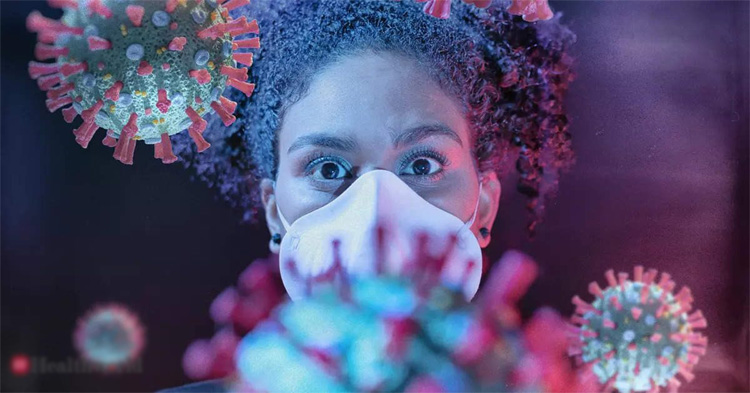Long Covid can cause face blindness; what are its symptoms
Long Covid or post Covid conditions can cause a variety of health conditions that has left the scientists across the globe bewildered. While some of these symptoms can be managed easily others can be tricky.
The range of symptoms that include fatigue, depression, anxiety, headaches, certain heart conditions can last at least three months post-infection and affect a person’s quality of life.
People with Post-Covid conditions can have a wide range of symptoms that can last weeks, months, or even years after infection. Sometimes the symptoms can even go away or come back again, as per CDC.
Covid can affect many parts of our body including heart, lung, kidney, skin, and brain. One of the long Covid condition people are susceptible to as per a recent study published in the journal Cortex, is face blindness or prosopagnosia. Face blindness is a neurological disorder where people find it difficult to process visual information that includes recognising even very familiar faces and having trouble with directions. They may need help with navigation and from a neurologist and psychologist to understand the therapy and support options. There is no cure to face blindness. The study mentioned a 28-year-old woman named Annie, who contracted Covid in March 2020 and while after that Annie had no trouble recognising faces, however, two months after contracting the virus, she struggled to identify even her closest family members.
What is face blindness
“Face blindness or prosopagnosia is a neurological disorder where you may face difficulty recognising the faces of people. Some people, suffering from long Covid, are likely to develop difficulty recognising people. They may find it difficult to recognize even their close family members and relatives,” says Dr. Najeeb Ur Rehman, Senior Consultant Neurology, Marengo Asia Hospital, Faridabad.
Dr Najeeb says this may happen because long Covid may lead to a range of neurological symptoms which may impact the brain sections accountable for face recognition, leading to difficulty in processing visual information and recognising familiar faces.
“Covid-19 may become the cause of inflammation and damage to the blood vessels, which may lower blood flow to the brain. Therefore, this may lead to brain damage and cognitive impairments like face blindness,” says the expert.
Dr Charu Dutt Arora, Infectious Disease Specialist, Consultant Physician, AmeriHealth, Asian Hospital says the condition is seen in almost 2% people of the world and there are other associated issues such as navigational deficits and ‘brain fogging’.
“The researchers at Dartmouth college assessed a case named Annie where she experienced similar symptoms almost 2 months of having Long COVID syndrome. She had difficulties finding the packet of milk in a grocery store, identifying her car in the parking lot and inability to identify familiar faces,” says Dr Arora.
How is face blindness linked to Covid-19?
“There is a combination of prosopagnosia and navigational deficits which is linked to brain damage or developmental issues, mainly function or the brain’s temporal lobe. Covid-19 is known to thicken the blood and cause inflammation of the blood vessels, thus impairing blood flow to the brain and surrounding areas. This can lead to damage and cognitive impairments,” says Dr Arora.
There can also be impaired electrical activity of the neurons because of Covid-19 infection that can result in neurological impairment and difficulties in processing visual information and recognition of familiar faces.
Dr Arora, however, says not all Covid-19 patients develop this complication and it’s quite a rare one. “So far, the number is limited to research subjects and should be studied in detail worldwide.
This condition is seen mainly in stroke and autistic patients,” he adds.
How to diagnose and treat?
“Benton Facial recognition test (BFRT) and Warrington Recognition Memory of Faces (RMF) are two commonly used tests and scales by physicians to diagnose face blindness. There is no cure for face blindness. It focuses on coping mechanisms to better identify individuals and things. One must seek professional help from a neurologist and psychologist to understand the therapy and support options,” concludes Dr Arora.

